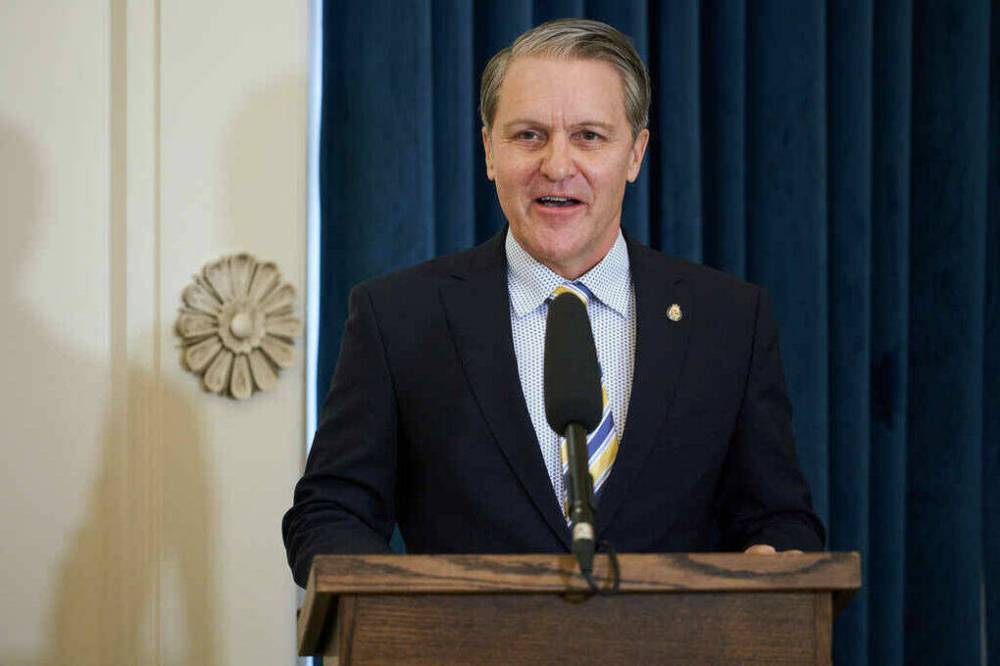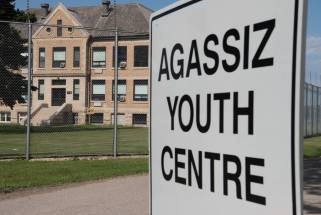Manitobans want better health care, not cut-now pay-later tax relief
Read this article for free:
or
Already have an account? Log in here »
To continue reading, please subscribe:
Monthly Digital Subscription
$0 for the first 4 weeks*
- Enjoy unlimited reading on winnipegfreepress.com
- Read the E-Edition, our digital replica newspaper
- Access News Break, our award-winning app
- Play interactive puzzles
*No charge for 4 weeks then price increases to the regular rate of $19.00 plus GST every four weeks. Offer available to new and qualified returning subscribers only. Cancel any time.
Monthly Digital Subscription
$4.75/week*
- Enjoy unlimited reading on winnipegfreepress.com
- Read the E-Edition, our digital replica newspaper
- Access News Break, our award-winning app
- Play interactive puzzles
*Billed as $19 plus GST every four weeks. Cancel any time.
To continue reading, please subscribe:
Add Free Press access to your Brandon Sun subscription for only an additional
$1 for the first 4 weeks*
*Your next subscription payment will increase by $1.00 and you will be charged $16.99 plus GST for four weeks. After four weeks, your payment will increase to $23.99 plus GST every four weeks.
Read unlimited articles for free today:
or
Already have an account? Log in here »
Hey there, time traveller!
This article was published 24/03/2022 (1357 days ago), so information in it may no longer be current.
When politicians borrow money to cut taxes, what they’re really doing is robbing Peter to pay Paul.
Paul gets an immediate tax cut and the politician enjoys short-term political credit. However, Peter has to pay for the tax cut down the road — with interest.
It’s one of the reasons fiscal conservatives are opposed to borrowing money to cut taxes — it’s irresponsible and it’s unfair to future taxpayers.
Former premier Brian Pallister robbed Peter to pay Paul on several occasions, including his decision last year to borrow $190 million to cut education property taxes. Government will have to borrow a further $151 million per year for the next six years (when the books are scheduled to be balanced), to pay for that tax cut. It will add about $1 billion to the provincial government’s net debt, which is projected to hit $29.1 billion in 2021-22. The interest alone on the extra debt will reach about $30 million a year.

It appears Pallister’s successor, Premier Heather Stefanson, is about to make the same mistake.
Finance Minister Cameron Friesen pledged on Wednesday that when he brings down his 2022 budget April 12, Manitobans can expect some tax relief. He didn’t specify which taxes or how much he was prepared to cut (leaving those details, as usual, to budget day). However, he did say it was important to provide Manitobans with some tax relief, in part to help offset soaring inflation rates.
That would be a mistake — one that taxpayers would ultimately pay for down the road with higher debt-servicing charges, which will continue to grow as interest rates rise.
Friesen described borrowing money to pay for a tax cut as “walking and chewing gum at the same time.” It’s more like taking a cash advance from your credit card to give your teenager a larger allowance.

Most Manitobans don’t agree with the move, at least according to the province’s pre-budget survey. When asked what their priorities are for the 2022 budget, only 24 per cent of respondents said reducing taxes was a high priority. It ranked eighth out of nine options presented in the survey. The lowest priority (18 per cent) was reducing the provincial debt/deficits.
If the question was: do you agree the province should borrow money to cut taxes, the level of support would likely be even lower.
The online survey of 7,446 people, conducted in part by Probe Research Inc., is not a scientific poll. However, it provides some indication of how taxpayers want their money spent.

By far the biggest priority was improving health care at 86 per cent. No other category came close. Improving education was a distant second at 49 per cent and increasing mental health/addiction support was third at 44 per cent.
Manitoba’s health-care system was in tatters long before the COVID-19 pandemic drove it further into the ground. Hospital wait times in Manitoba have been among the longest in the country for years. It’s now worse, with surgical and diagnostic testing backlogs numbering in the tens of thousands. Emergency room wait times are longer today than they were when the province began amalgamating acute-care hospital services in 2017.
Manitobans want that fixed. People are waiting in pain and agony for surgeries, diagnostic tests and other treatment. It appears most don’t want their taxes cut if it comes at the expense of timely medical care.
People are waiting in pain and agony for surgeries, diagnostic tests and other treatment. It appears most don’t want their taxes cut if it comes at the expense of timely medical care.
A slight majority of respondents in the survey (55 per cent) even support the idea of balancing the budget later than when scheduled for 2028, which would free up more money to fix the province’s battered health-care system. Only 32 per cent agreed the province should balance the books by 2028, even if it means reducing government spending further to do so.
Eliminating the province’s $1.1-billion pandemic deficit is important. Government spending can’t exceed revenues forever. However, returning to balance can be done over time without compromising the province’s credit rating or putting its liquidity at risk.
Friesen is right that Manitoba’s tax burden is higher than most provinces, at least when it comes to individual income taxes (it has been for decades). That should be addressed in the future to improve Manitoba’s competitiveness. But borrowing money to cut taxes makes no sense.
Manitobans seem to understand that.
tom.brodbeck@freepress.mb.ca

Tom has been covering Manitoba politics since the early 1990s and joined the Winnipeg Free Press news team in 2019.
Our newsroom depends on a growing audience of readers to power our journalism. If you are not a paid reader, please consider becoming a subscriber.
Our newsroom depends on its audience of readers to power our journalism. Thank you for your support.










